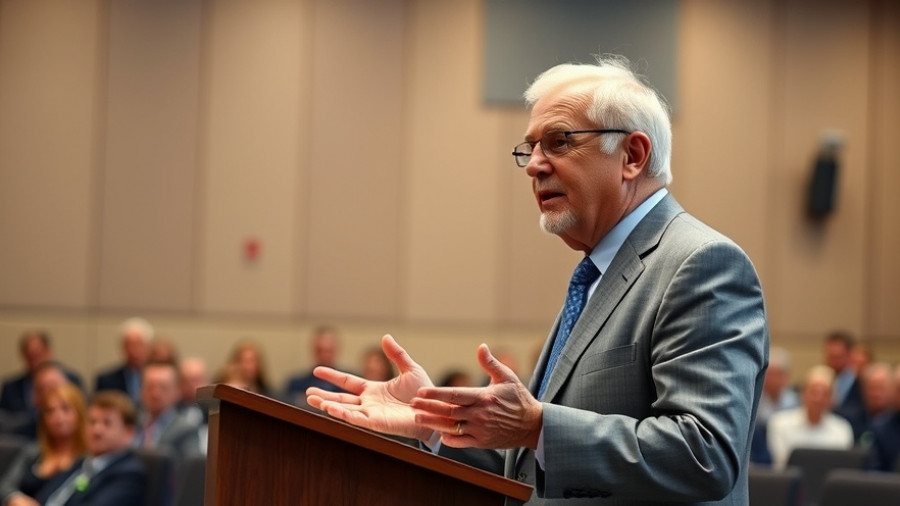
Understanding Grace Through God's Sovereignty
The topic of grace is monumental for all believers; it's the foundation of our relationship with God. In the inspiring video titled We Cannot Please God Without Grace: TULIP Session 3, Dr. John Piper dives deep into how grace is interwoven with the doctrines of Calvinism and how they serve to illuminate the profound comfort of God's sovereignty.
In We Cannot Please God Without Grace: TULIP Session 3, the discussion dives into the profound impact of grace in our spiritual journeys, exploring key insights that sparked deeper analysis on our end.
The Importance of Grace in Daily Life
Imagine facing life's challenges without the knowledge that God is in control—how overwhelming that would be! Dr. Piper emphasizes how grace shapes our view of God's sovereignty, suggesting that being aware of His omnipotent presence can transform us from passive victims of life's trials into empowered participants in His plan. When Johnny Ericson Tada shared her experiences while incapacitated, her deep-rooted faith through suffering exhibits just how encompassing grace can fill our hearts even in the midst of pain.
Spiritual Growth Through Calvinism
In his compelling talks, Piper shares that understanding Calvinism aids in the development of a robust faith that is anything but dry or intellectual. Instead, Calvinism lays the groundwork for an exuberant, joy-filled relationship with God, urging us to dive deeper into the doctrines that describe our relationship with Him—specifically, grace. Dr. Piper points out that grace isn’t a mere theological stance but the very fuel that drives us to live out our faith actively.
A Call to Resilient Faith
The video illustrates that resilience in faith is often tested through trials. When faced with a challenge, rather than losing heart, believers are called to reflect on God’s grace and sovereignty. Just as Job worshiped amid unspeakable suffering, we too are reminded to hold firm, for grace empowers us to make it through the darkest moments, rooted in the understanding that God’s plans for us are ultimately good.
What Is Total Depravity?
The concept of total depravity can be confusing, especially for those new to the faith. Dr. Piper clarifies it beautifully by stating that total depravity doesn’t mean that people are as bad as they can be, but rather that every aspect of our being is tainted by sin. This foundational understanding allows us to appreciate grace as a divine gift—something we cannot earn on our own but receive from God, underscoring our need for Him.
Practicing the Presence of Jesus
Dr. Piper highlights the practice of being present with Jesus, a theme that resonates deeply in our hectic lives. Engaging with grace requires us to read and reflect on God's Word continually. Johnny Ericson Tada exemplifies this practice through her written works, inviting readers to experience a deep and abiding communion with Christ, demonstrating that God’s grace can fill us with hope, joy, and purpose, even through suffering.
Grace in Community and Relationships
The nurturing of faith doesn’t exist in isolation. It thrives within community. Just as the early believers gathered together for teaching and fellowship, today’s believers are encouraged to come together, sharing their experiences of grace with one another. Whether it’s in a church setting or at home, encouraging each other with stories of God's faithfulness fosters an atmosphere conducive to spiritual growth.
Conclusion: An Invitation to Trust God
As we embark on our spiritual journeys, understanding and embracing the truths of grace teaches us how to live differently. Dr. Piper’s teachings and the personal testimony of faithful believers illustrate just how crucial it is to be rooted in the knowledge of God’s sovereignty. Therefore, let’s challenge ourselves to delve deeper into what it means to trust God in every aspect of our lives. In moments of doubt, remember that God's grace is an unending resource for our journey towards spiritual maturity.
 Add Row
Add Row  Add
Add 








Write A Comment